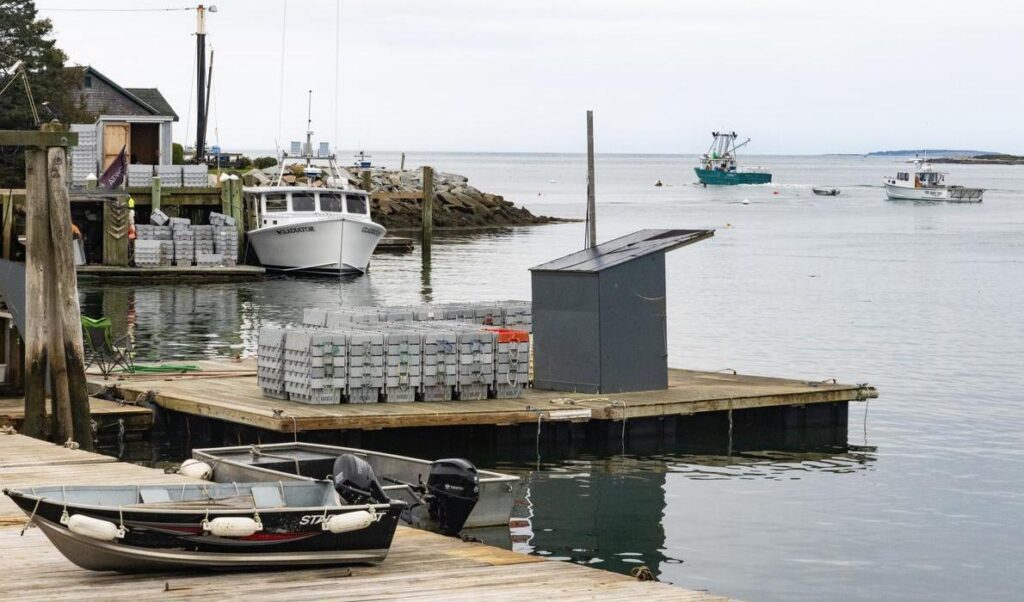You have recently read several articles and op-eds in The Working Waterfront debating the role of aquaculture in Maine. As the publisher of this newspaper, Island Institute takes pride in providing a virtual, open “town square” where people can come together for hard conversations on controversial topics. As a trusted voice on the issues that affect Maine’s coast, we are also keenly aware of our responsibility to share accurate and timely information based on our own programmatic experience and expertise.
Our strategy is built on the premise that an enduring and prosperous marine economy must include aquaculture. From the fishermen who want to diversify their businesses through aquaculture to Maine’s unique location, its natural cold, clean waters, and the global demand for ocean-based, sustainable protein, aquaculture is not only desired, but also a foundational element of our fishing future.
In 2023, SEAMaine, the broad team of stakeholders responsible for developing a roadmap for the marine economy, estimated that the aquaculture industry contributes $220 million to the state’s economy each year. Maine also has a strong aquaculture roadmap, released in 2022, that is helping to guide the future of aquaculture in Maine. It was collaboratively developed with input from a diverse range of stakeholders with a common interest in the aquaculture sector.
Managing this new and growing element of the marine economy, which includes some 25 different species of finfish, shellfish, and sea vegetables, is crucial. In fact, while not widely understood, Maine’s practices and policies to manage the aquaculture sector stand out nationally and globally as a widely recognized model for a responsible and robust aquaculture permitting process.
As the opportunities to make a living along the coast of Maine change due to a variety of economic and climate forces, diversification is a survival strategy. This is why Island Institute has chosen to invest our resources in supporting an ever-growing number of municipalities and businesses that choose to be part of this important sector.
- We are helping small aquaculture businesses strengthen their business models so they can employ more people in this sector. Nearly all aquaculture farms are family-owned. Many are smaller than five acres—far short of any threshold that would allow farmers to hire more people, provide benefits, and offer a meaningful wage.
- We are introducing young people who aspire to jobs on the water to opportunities in aquaculture. Roughly 700 people are currently employed directly in the sector and the demand is growing.
- Through a series of studies, we are helping this sector, which is already climate– friendly, to further reduce its carbon emissions.
- We are also a proud partner with CEI, FocusMaine, Maine Aquaculture Association, World Wildlife Fund and others to raise awareness about the value of farmed seafood and aquaculture in Maine.
The stakes are high, and careful management of our ocean resources is essential to the future success of our coastal economy. Unfortunately, the misrepresentation of aquaculture continues to cast more heat than light as evidenced by the recent back-and-forth in the pages of this newspaper. This helps no one—not the farmer, not the consumer, and not interested community members who know that the places they choose to live in depend on new economic opportunities.
Island Institute is a committed partner in supporting the growth of a diversified and sustainable aquaculture sector. With a vision for island and coastal communities that thrive in the face of challenges, our own work is imperiled by short-sighted controversy that does not center community sustainability. A diversified community economy is a stronger economy, and that has always been Maine’s proud heritage.
Kim Hamilton is president of Island Institute, publisher of The Working Waterfront. She may be contacted at khamilton@islandinstitute.org.





